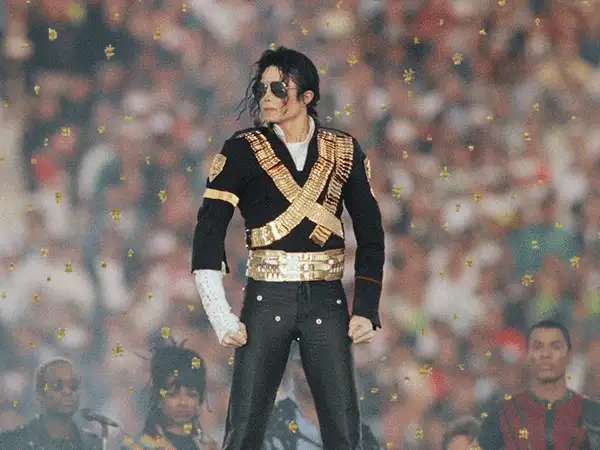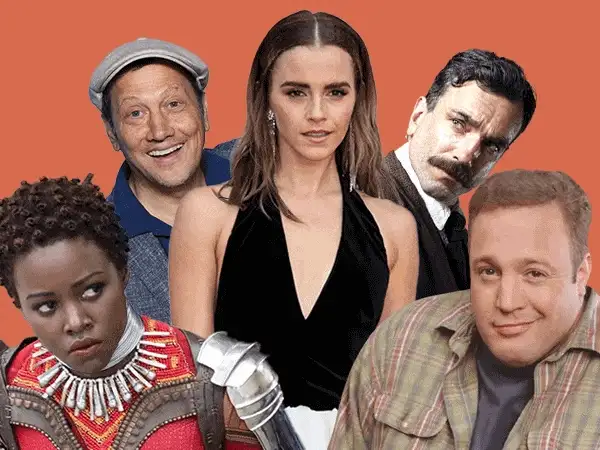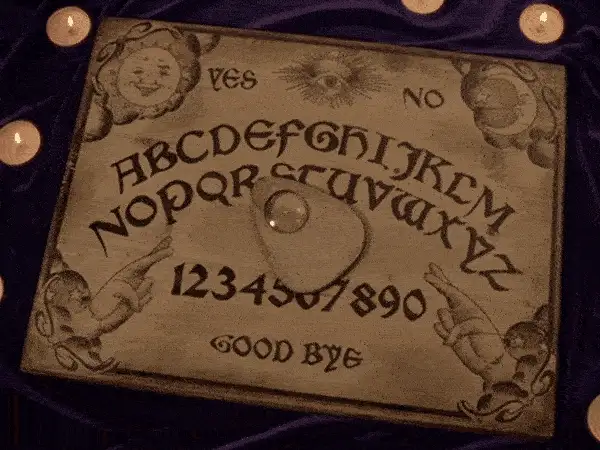As season 20 of The Bachelorette enters its finale on Monday, three men are left standing. Their self-described jobs are:
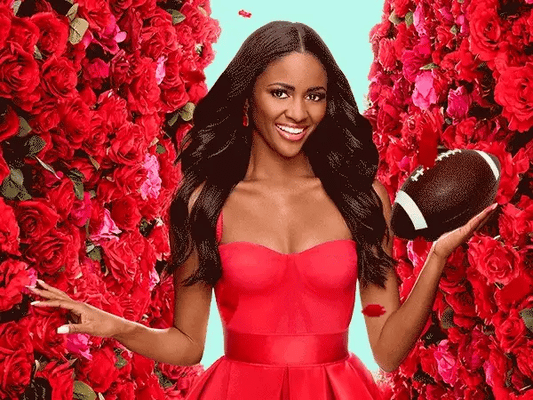
- Tennis coach
- Integrative medicine specialist
- Software salesman
This is a pretty random conglomerate of professionals. And it got us thinking: Are certain professions more heavily represented than others? And historically, do contestants’ job titles have anything to do with their success rates on the show?
To find out, we decided to analyze the jobs and outcome of every contestant across 19 seasons of The Bachelorette.
What do ‘The Bachelorette’ contestants do for work?
Since debuting in 2003, The Bachelorette has become one of television’s most beloved reality shows. In its heyday, in the early aughts, it was attracting as many as 20m viewers per week — nearly as many as the Grammy Awards (though in recent years, these numbers have dramatically fallen).
The show works like so:
- The season starts off with 25-30 contestants who compete for the affection of the bachelorette.
- Each week, there is a rose ceremony, in which the bachelorette gives out roses. Those who do not receive one are eliminated.
- The final ceremony comes down to two contestants. One of them proposes to the bachelorette. If she accepts, he is the “winner.”
Since 2003, the show has featured 523 contestants — and every single one of them is introduced by way of a pop-up box containing their name, location, age, and occupation.
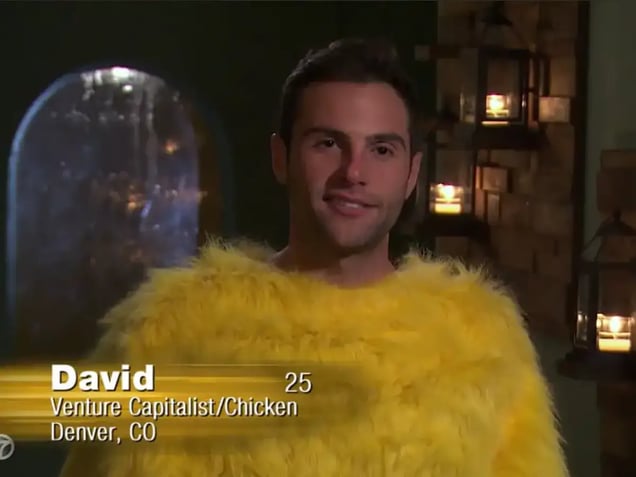
Contestants are typically identified by their job, like venture capitalist/chicken, David Ravitz, on season 14 (ABC)
On occasion, probably at the behest of the show’s producers, contestants will put ridiculous stuff for their job title in a bid to get attention:
- Meatball enthusiast
- Tickle monster
- Amateur sex coach
- Pantsapreneur
- Hipster
But even the “serious” job titles should be taken with a grain of salt.
“There was… a guy who worked at Home Depot, and we took some poetic license and labeled him a ‘construction consultant,’’” one of the show’s producers told Entertainment Weekly in 2018. “He had no complaints.”
So, needless to say, this “analysis” isn’t meant to be taken too seriously.
We did our best to spot-check job histories using LinkedIn, and we filtered out jobs that were clearly a joke, or impossible to categorize. Here’s what we found:
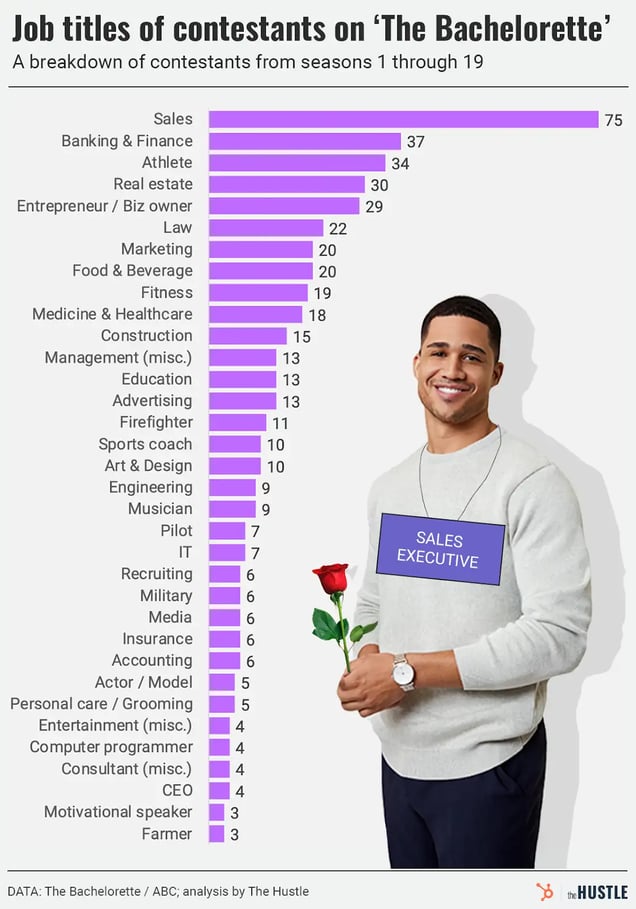
The Hustle
Around 16% of all contestants work in some form of sales. These men hawk all kinds of goods: pharmaceuticals, software, solar panels, oil-field equipment, cell phones, liquor, and surgical skin. Another 8% work in banking and finance-related fields, the favored bro career path.
“Entrepreneur” is another popular title — though the show’s producers, who generally hold some sway on how the jobs are described, hate how liberally contestants try to use that moniker.
“Men can be surprised that we don’t just give the OK to every person who would like to be called an ‘entrepreneur,’” a producer once said. “That occupation seems to be the catchall for ‘I really don’t know what I’m doing with my life, but this sure sounds cool.’”
Over-represented and under-represented jobs
We grouped all 523 contestants’ jobs into the major job categories designated by the Bureau of Labor Statistics to see which jobs were the most over-represented and under-represented for men on the show.
Interestingly, many of America’s most common jobs that drive the economy — administrative work, transportation, food service — are vastly under-represented among The Bachelorette’s competition pool.
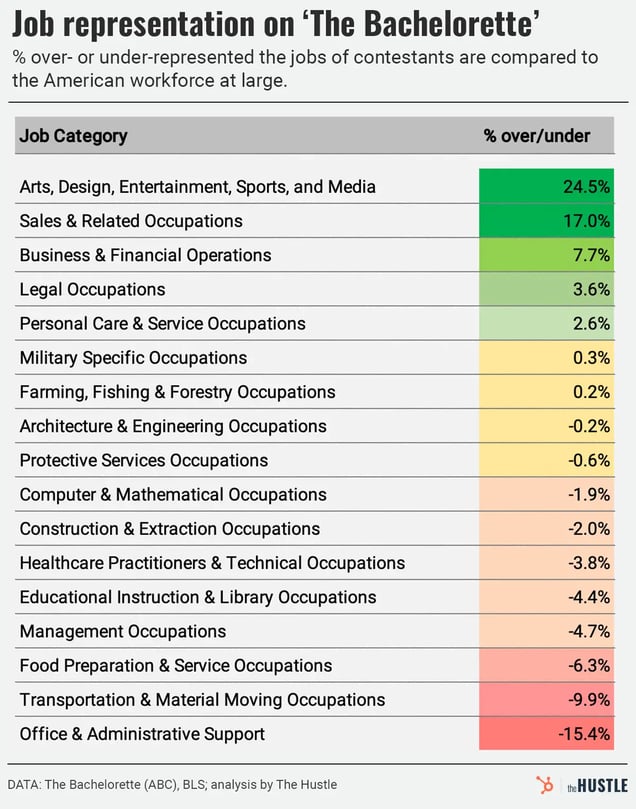
The Hustle
As you might expect, the show’s producers tend to gravitate toward professionals in more glamorous and/or higher-paying fields, like sales and finance.
By far the most over-represented job grouping? People who work in the arts, design, entertainment, and sports industries. And that’s almost entirely driven by one job title in particular: athletes.
The Bachelorette casting office loves men who are, or formerly were, professional athletes. They represent 7% of the show’s contestants, despite only making up 0.01% of all American workers. That means athletes are over-represented on the show by a factor of 700x.
These athletes have ranged from pro surfers to drag racers. But the largest contingent is former NFL players. The show took that commitment a step further last season, when it hired former NFL quarterback Jesse Palmer as the permanent host.
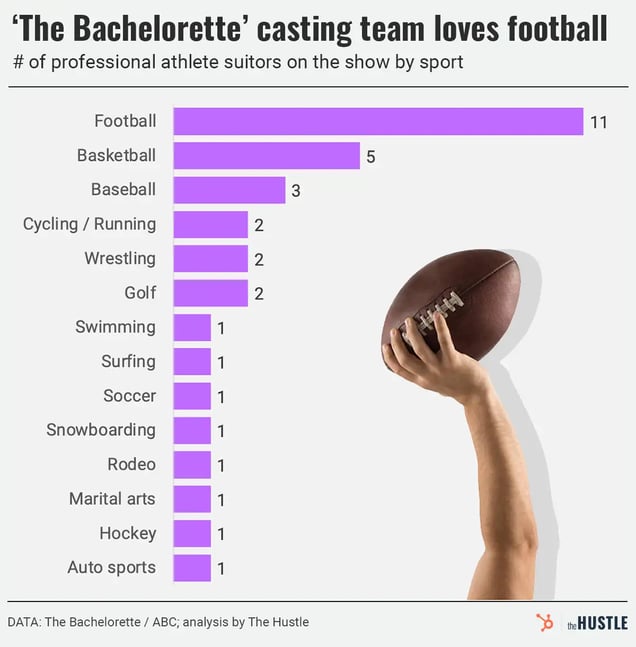
Zachary Crockett / The Hustle
As it turns out, athletes aren’t just the most over-represented profession on the show. They are also among the most successful when it comes to getting the final rose.
The jobs most (and least) likely to win The Bachelorette
Obviously, the show’s bachelorettes don’t choose a “winner” based on profession alone.
Like any mate-selection ritual, there are many factors at play: physical attraction, personality, and — well, as much personal connection as can be achieved over an eight-week period in front of the cameras.
But just for fun, we wanted to see if there were any trends in the types of jobs that typically come out on top.
When looking at the overall winners, there’s a clear answer (and note: seasons 16 and 19 had two bachelorettes each, so there were a total of 21 winners over 19 seasons):
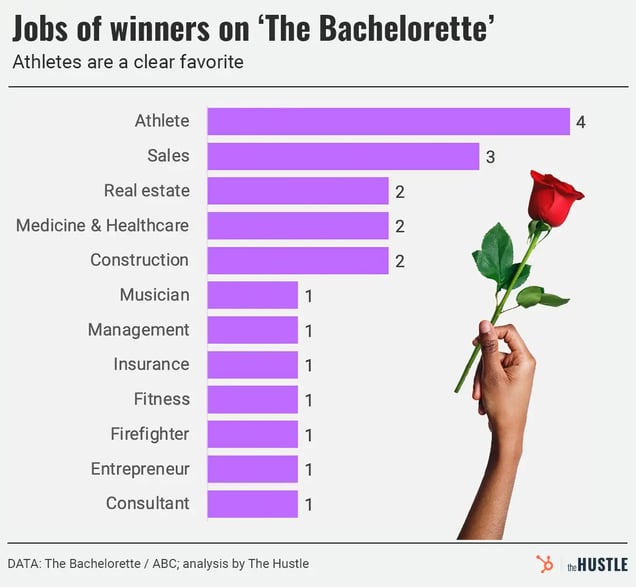
The Hustle
But this doesn’t really tell the full story.
We wanted to see which jobs have most consistently ranked toward the top or bottom of contestants. So, we calculated an average placement score for each job. For example, if five models were on the show and finished in places 6, 11, 12, 16, 25, their average score would be: 70 / 5 = 14.
A few notes: 1) In The Bachelorette, contestants are often let go in groups. In these cases, contestants were given a place based on the order in which they left the stage, or in cases where we couldn’t determine that, at random; 2) we filtered out jobs with fewer than four contestants.
Here’s what we found:
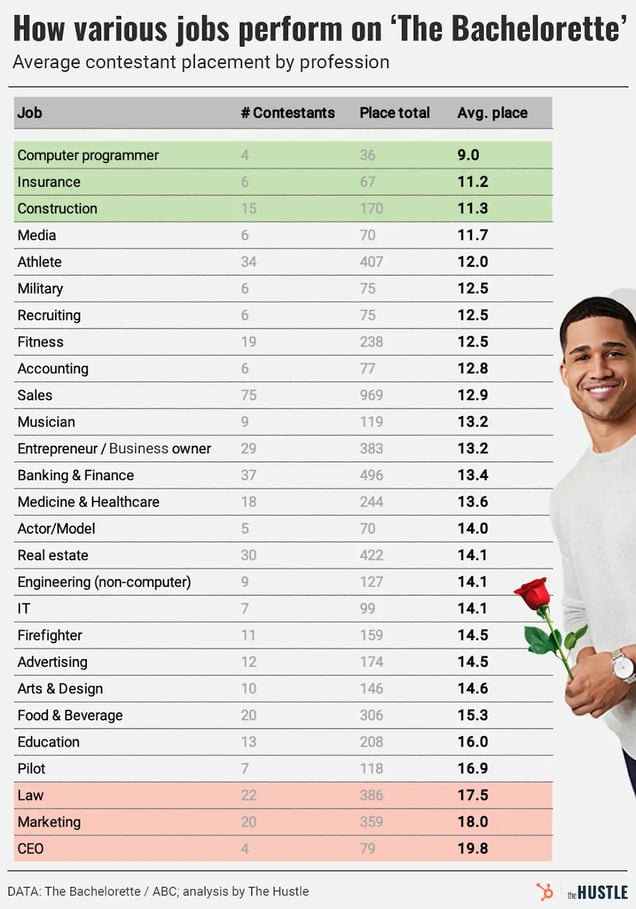
The Hustle
Albeit a smaller sample size, the four computer programmers on The Bachelorette have placed an incredibly consistent 7th, 8th, 10th, and 11th.
But the real takeaway here is that, on average, “unsexy” jobs — insurance agents, construction professionals, accountants — seem to hold their own with the athletes, fitness gurus, and male models of The Bachelorette universe.
All four CEOs, by contrast, have done very poorly, placing 13th, 19th, 20th, and 27th. Lawyers and marketers? Also not so hot.
The afterlife of a winner
Ultimately though, winning the show doesn’t really amount to much, romantically speaking.
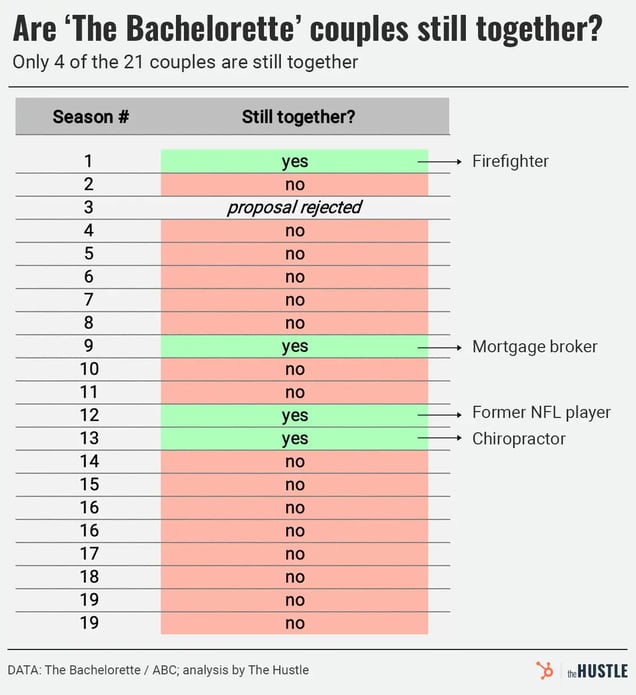
The Hustle; note: there were two couples each on seasons 16 and 19
Only 4 of the 21 couples (~19%) that have linked up in the finales of The Bachelorette are still together today. That’s more than twice the divorce rate in America on the whole.
So, regardless of what your job is, you’re probably better off hunting for love on a dating app than on a reality TV show.

